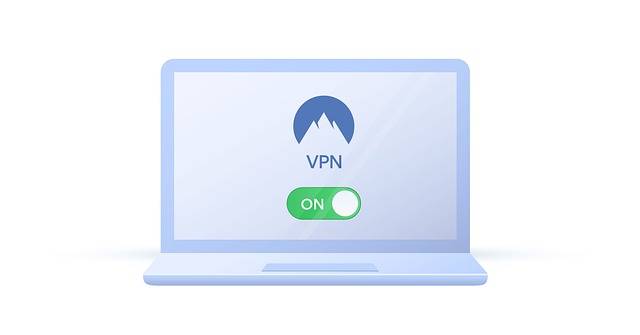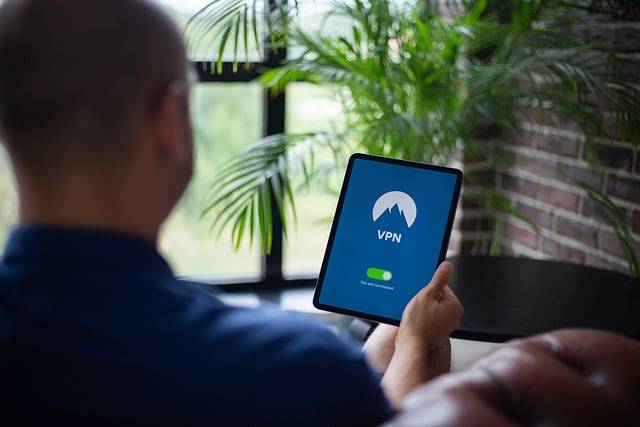In today’s digital world, it is essential to be aware of the security measures you can take to protect your data. One such measure is using a Virtual Private Network (VPN) to hide from network administrators.
This article will explore the effectiveness of VPNs in hiding from network admins, how they can help protect your data, and what you need to know about their pros and cons.
Additionally, we’ll look at ways that you can use a VPN for maximum privacy protection against network administrators so that you can outsmart the system and keep your data private.
Table of contents: Does VPN Hide from Network Admin
- Uncovering the Truth: Examining the Effectiveness of VPNs in Hiding from Network Administrators
- Is Your Data Secure? Understanding How VPNs Can Help Protect You From Network Admin Monitoring
- The Pros and Cons of Using a VPN to Hide From Network Admins
- Keeping Your Data Private: Exploring What a VPN Can Do To Keep You Hidden from Network Administrators
- Outsmarting the System: Discovering How to Use a VPN for Maximum Privacy Protection Against Network Admins
When it comes to online security, a Virtual Private Network (VPN) is often the first line of defense. But does a VPN hide from network administrators? The answer is yes – and no.
A VPN encrypts data sent over the internet, making it difficult for anyone outside your network to intercept or access that data. This means that even if someone were able to gain access to your device or network, they would not be able to view any of the information you’re sending or receiving without breaking through the encryption.
However, while a VPN can protect you from external threats such as hackers and malicious software, it cannot hide all activity from an internal administrator on your own local area network (LAN). A system administrator has full control over what goes in and out of their LAN and can monitor traffic within their own domain with ease. They will be able to see which devices are connected at any given time as well as what websites those devices are accessing – regardless of whether they’re using a VPN or not.
In addition, some companies may have policies in place that require employees who use company-owned computers on their home networks must connect via an approved corporate-level virtual private networking solution instead of using consumer-grade services like Hotspot Shield or TunnelBear for personal use at home during non-working hours.
In this case, even if an employee uses a consumer-grade service when working remotely on company property during business hours but then switches back to another provider after work ends -the system admin will still be aware due since he/she has full visibility into all traffic coming into/outgoing from his/her LAN.
So while a VPN can help protect against external threats by encrypting data sent over public networks such as Wi-Fi hotspots, it cannot completely obscure activity from internal administrators who have unrestricted access rights within their own domain. It’s important for users to understand these limitations before relying solely on one form of security measure when browsing online.
Uncovering the Truth: Examining the Effectiveness of VPNs in Hiding from Network Administrators
The use of Virtual Private Networks (VPNs) is becoming increasingly popular as a way to hide from network administrators. But how effective are they really? To answer this question, we must first understand what a VPN does and why it is used in the first place.
A VPN creates an encrypted tunnel between two points on the internet, allowing users to access websites and services that would otherwise be blocked by their local network administrator. This means that even if your local administrator can see what you’re doing online, they won’t be able to read any of your data or determine where you’re going.
However, while this may sound like an ideal solution for those looking to stay hidden from their network admin, there are some drawbacks associated with using a VPN. For one thing, many networks have security measures in place that can detect when someone is using a VPN and block them accordingly – meaning that even if you think you’re safe behind the encryption provided by your chosen service provider, there’s still no guarantee that your activities will remain hidden forever.
In addition to this issue of detection by security systems within networks themselves; another potential problem lies with providers who log user activity or keep records of IP addresses connected through their servers – something which could potentially reveal information about who was accessing certain sites at any given time if these logs were ever obtained by authorities or other third parties such as hackers seeking out vulnerable targets for cyber attacks.
So while it’s certainly possible for users to hide from their own network administrators via the use of virtual private networks; it’s important not only to choose reputable providers but also to take additional steps such as regularly changing IP addresses and disabling logging features whenever possible – in order ensure maximum privacy protection against all potential threats both online and offline alike!
Is Your Data Secure? Understanding How VPNs Can Help Protect You From Network Admin Monitoring
As technology continues to evolve, so does the need for data security. With more and more of our lives being stored online, it is essential that we protect ourselves from potential threats. One way to do this is by using a Virtual Private Network (VPN). A VPN can help keep your data secure by encrypting all of your internet traffic and hiding it from network administrators who may be monitoring your activity.
A VPN works by creating an encrypted tunnel between you and the server you are connecting to, which prevents anyone else on the same network as you from seeing what websites or services you are accessing. This means that even if someone were able to intercept your connection, they would not be able to view any of its contents due to encryption protocols used in conjunction with a VPN service provider’s servers. Additionally, many providers offer additional features such as IP address masking or kill switches which further enhance privacy protection when connected through their networks.
Using a VPN also allows users to access content that may otherwise be blocked due to geographical restrictions imposed by certain countries or ISPs (Internet Service Providers). By routing all traffic through an external server located in another country where censorship laws differ from those at home; users can bypass these blocks and access websites without fear of being monitored or tracked down while doing so.
In conclusion, understanding how a Virtual Private Network works can help protect yourself against potential threats posed by malicious actors looking for vulnerable targets on public networks while providing additional benefits like unrestricted access across borders – making them invaluable tools for anyone looking for greater control over their online safety and privacy!
The Pros and Cons of Using a VPN to Hide From Network Admins
Using a Virtual Private Network (VPN) to hide from network administrators can be a great way to protect your online privacy. It allows you to access websites and services that may otherwise be blocked by the administrator, as well as encrypt your data so it is not visible to anyone else on the network. However, there are some potential drawbacks of using a VPN for this purpose that should be considered before taking the plunge.
The first thing to consider is whether or not using a VPN will actually help you remain anonymous from the network administrator. While it can provide an extra layer of security, if they have access to logs or other records of activity on their system, then they could still potentially trace back any activity originating from your device, even with encryption in place.
Additionally, many networks have policies in place that forbid users from connecting via third-party services such as VPNs – meaning that even if you do manage to connect successfully without being detected, you could still face repercussions for doing so later down the line.
Another issue with using a VPN is its cost – while there are free options available out there, these often come with limited features and slower speeds than paid alternatives, something which could severely hamper your browsing experience depending on what tasks you’re trying to carry out online whilst connected through them.
Finally, some countries block certain types of traffic when accessed through foreign IP addresses, meaning that if you’re attempting to use one located outside of where you live, then certain sites may simply refuse connection altogether due lack of compatibility issues between different regions’ regulations and laws regarding internet usage.
In conclusion: while hiding behind a virtual private network can certainly offer additional protection against prying eyes – including those belonging to administrative personnel – it’s important to weigh up all pros and cons carefully before committing yourself either way!
Keeping Your Data Private: Exploring What a VPN Can Do To Keep You Hidden from Network Administrators
In today’s digital world, it is essential to keep your data private and secure. With the rise of cybercrime and malicious actors, it is more important than ever to protect your online activity from prying eyes. One way to do this is by using a Virtual Private Network (VPN). A VPN can help you stay hidden from network administrators, allowing you to browse the web securely and anonymously.
A VPN works by encrypting all of your internet traffic before sending it through an intermediary server located in another country or region. This means that any network administrator monitoring your connection will only be able to see that you are connected via a VPN service rather than seeing what websites or services you are accessing directly.
Additionally, because all of your traffic is encrypted before being sent out over the internet, even if someone were able to intercept it, they would not be able to read its contents without having access to the encryption key used for that particular session.
Furthermore, using a VPN also allows users to access content that may otherwise be blocked due to their geographic location or other restrictions imposed by their ISP or government agency, such as censorship laws in certain countries like China, where many popular websites like Google and Facebook are inaccessible without using a VPN service first.
Finally, when choosing a good quality provider, make sure they offer features such as no-logging policies so none of your activities will ever be recorded on their servers, strong encryption protocols for maximum security, multiple device support so you can use one account across several devices at once, fast speeds for the uninterrupted streaming experience.
Overall, investing in a reliable VPN service provides peace of mind knowing that whatever information passes through its servers remains safe from hackers, snoopers & other malicious actors while giving users unrestricted access to content regardless of location.
Outsmarting the System: Discovering How to Use a VPN for Maximum Privacy Protection Against Network Admins
As the internet continues to evolve, so does the need for privacy protection. Network administrators are constantly looking for ways to monitor and control user activity on their networks. Fortunately, there is a way to outsmart these network admins and protect your data from prying eyes: using a Virtual Private Network (VPN).
A VPN provides an encrypted connection between two computers or devices that allows users to access restricted websites without being detected by network administrators. This means that all of your online activities will be kept private, even if you’re connected to an unsecured public Wi-Fi hotspot. By using a VPN, you can also bypass any geographical restrictions imposed by certain countries or regions on specific websites or services.
When choosing a VPN provider, it’s important to make sure they offer strong encryption protocols such as OpenVPN and L2TP/IPsec in order to ensure maximum security against potential threats like hackers and malicious software attacks. Additionally, look for providers with multiple server locations around the world so you can easily switch between different IP addresses when needed – this will help keep your identity anonymous while browsing online content from anywhere in the world!
Finally, make sure that the provider offers reliable customer support should any technical issues arise during the use of their service – this could save you time and hassle down the line! With these tips in mind, discovering how best to use a VPN for maximum privacy protection against network admins has never been easier!








